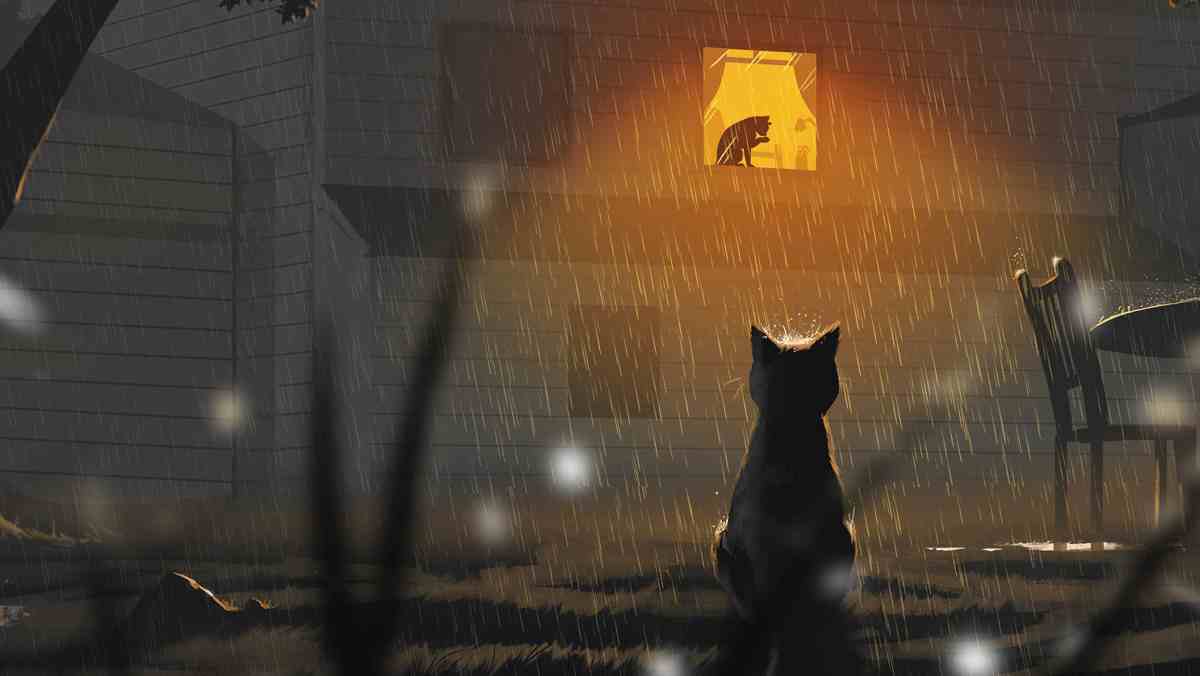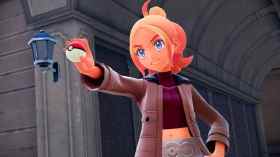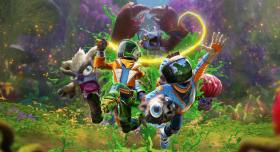Copycat may have a feline protagonist, but it is laden with complex human emotion.
You play as Dawn, a shelter cat who finds herself trapped in unfamiliar surroundings when she is adopted by an elderly woman named Olive. Olive is mourning the disappearance of her original cat of the same name, who slipped out the front door when an ambulance arrived to take her to hospital one day. She believes that “things [will] go back to the way they were” if she adopts an identical cat. With time, Dawn forms a close bond with Olive, but everything changes when a copycat replaces her, and she is cast out onto the street again.

Copycat is the debut title from Spoonful of Wonder, an indie collective co-founded in Sydney by digital nomads Samantha Cable and Kostia Liakhov. They are well-acquainted with the creative process, having worked together as a creative team in advertising for ten years; Sam as a copywriter and Kostia as an art director. Those roles carried directly over to Copycat, with Sam writing the script and Kostia leading the art and learning to program.
Speaking with GamesHub in the lead up to their appearance in the PAX Aus 2023 Indie Showcase, Sam and Kostia offered their insights into the process of making and self-publishing their first game.
“[Advertising] taught us a lot of structure,” says Kostia. “You have way shorter deadlines. You have to be very fast. You have to be very lean in your operation … it gives you this resilience creatively.” That resilience and structured work ethic has seen them build Copycat in a little over two years – thanks in no small part to their willingness in the past to experiment with new mediums.
It might be their first game development project, but the pair have plenty of experience working outside the confines of an average work week. “We’ve always dabbled with side projects,” says Sam. Over the years, they have produced a couple of short films, a short 3D animation and a children’s book. “We learned how to take a project from development to pre-production, then to production and post, and ultimately to distribute it, which is such a rare skill, I think – especially for a small team of two people … we’re just kind of doing it on our own, riding this roller coaster together.”
The preview of Copycat provided to GamesHub encompasses the first act of the three-part narrative. It begins with a first-person perspective from Olive at the adoption centre; her choice between the six cats available for adoption serves as the character selection screen. Once you’ve chosen your favourite, the perspective moves to Dawn as she takes a car ride and arrives at her new home.
Dawn is reluctant to leave her cage and lashes out at Olive’s premature advances; you are given single-button prompts to interact in the way that cats know best – meowing, scratching and biting. It’s difficult not to villainise Olive in these moments, as you suddenly inhabit this small furry body being backed into a corner, but it’s clear that she is lonely. There’s an immediate conflict of emotions.
Dawn is tempted out with food but when the phone suddenly rings, she becomes frightened and an action sequence prompts you to “RUN.” She bolts and hides under a shelf in the garage, where she remains for the next few days.
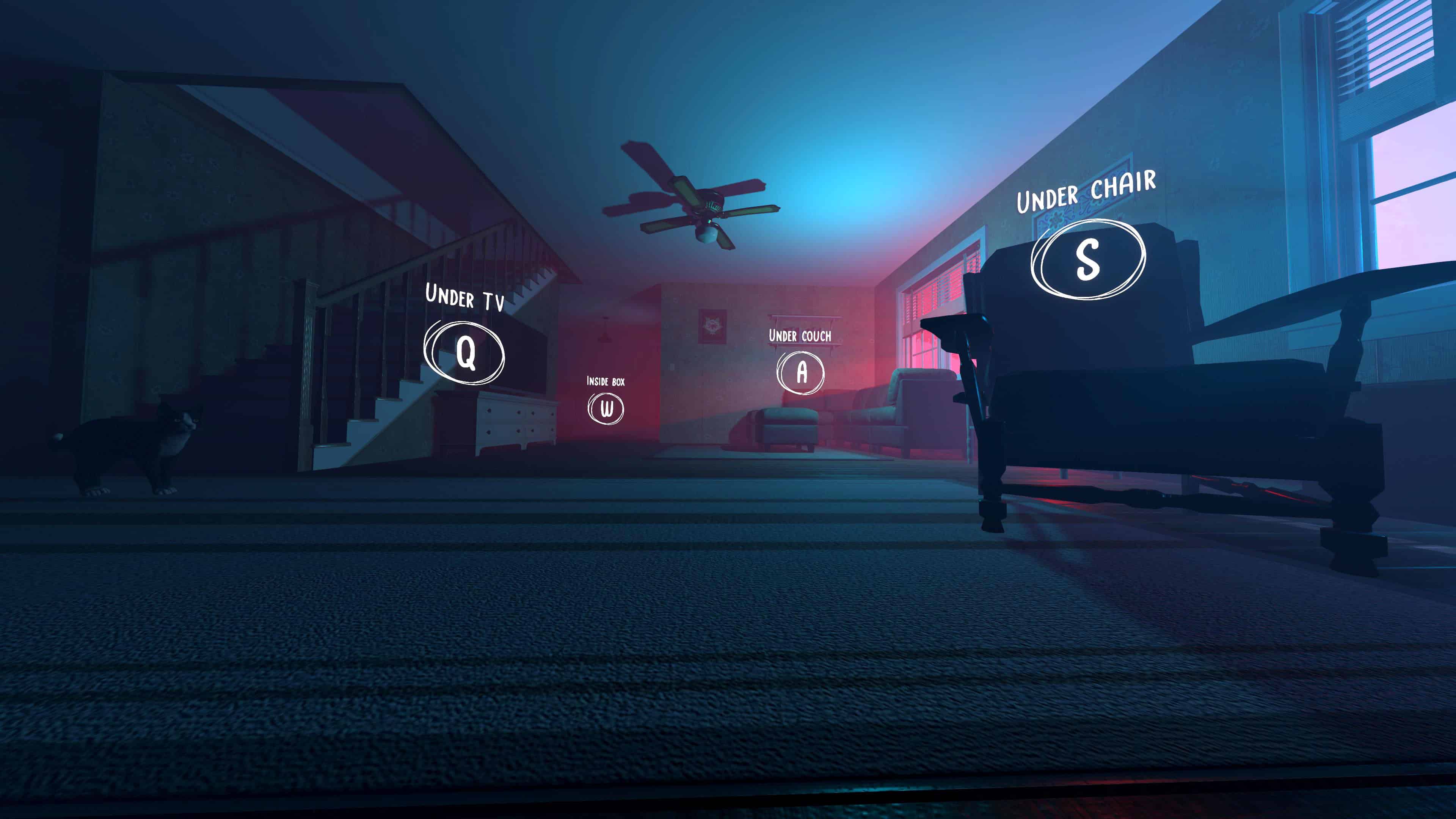
Copycat focuses with laser precision on ideas of home, belonging and rejection, and these core themes are deeply personal for Sam and Kostia. Sam reflects on their synthesis:
“We started the process in COVID and being separated from our families, both internationally speaking but also feeling a bit distant emotionally, we really had to reconsider what our notion of home was. I grew up moving around between lots of different countries and so my idea of home was very different to what Kostia’s idea of home was.”
“My home is currently, in a way, not accessible to me because it’s in the middle of the war zone in Ukraine,” adds Kostia. “So we both have a different connection to what the meaning of home is, but we both started valuing and appreciating the concept more recently because of the events.”
Through a process of elimination, they distilled those feelings and came to a simple conclusion about what home means, regardless of context. “We worked out that it wasn’t necessarily about the people that were around,” Sam says. “Of course, the people are such an important part of home – but it wasn’t the people. It wasn’t the infrastructure. It wasn’t the convenience. We realised that home is the place where you’re needed most.” That line is the first thing you see on-screen when you start the game, and the sentiment echoes throughout.
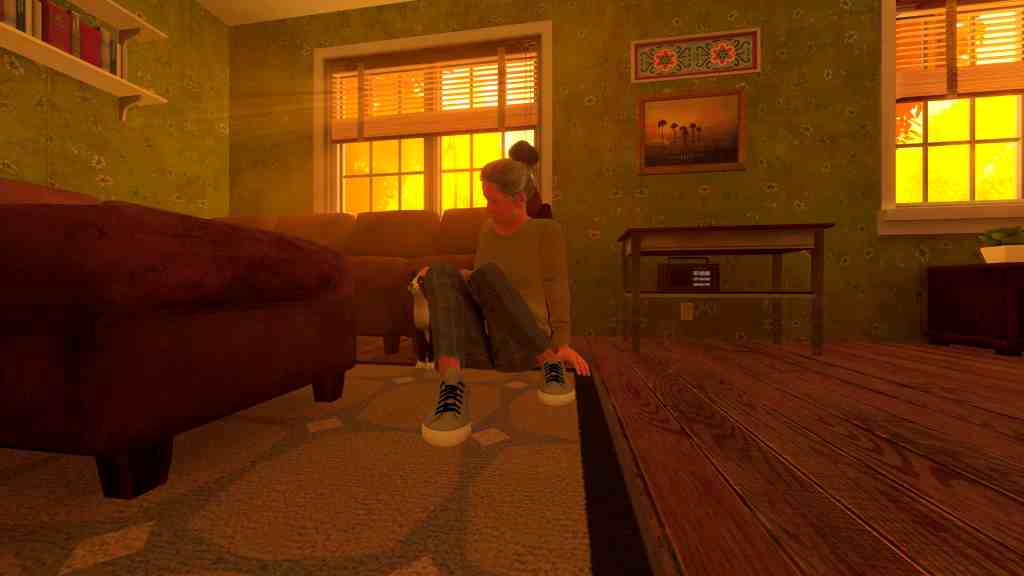
In the remainder of the preview, Dawn emerges from her hiding place when Olive leaves the house to visit the pharmacy. You are given free reign to explore the house from a cat’s third-person perspective: jumping up on furniture, knocking items over and sniffing out food. It’s an opportunity to ditch your human sensibilities and act purely on instinct.
With the TV left running in Olive’s absence, Dawn hears the narrator of a documentary talking about big cats and begins to delude herself that she’s one too. This narrator, the Nature Expert, follows Dawn for the rest of the game, commentating her devious behaviours, encouraging her to escape and drawing her into stylised scenarios where she is hunting prey as a wildcat.
This is juxtaposed by the reality of Dawn and Olive’s growing relationship. Olive trusts Dawn more, allowing her to explore the lush back garden and confiding in her about loss and loneliness. You overhear phone calls from Olive’s daughter, Mae, about her declining health with emphysema, and the need for her to enter a retirement home.
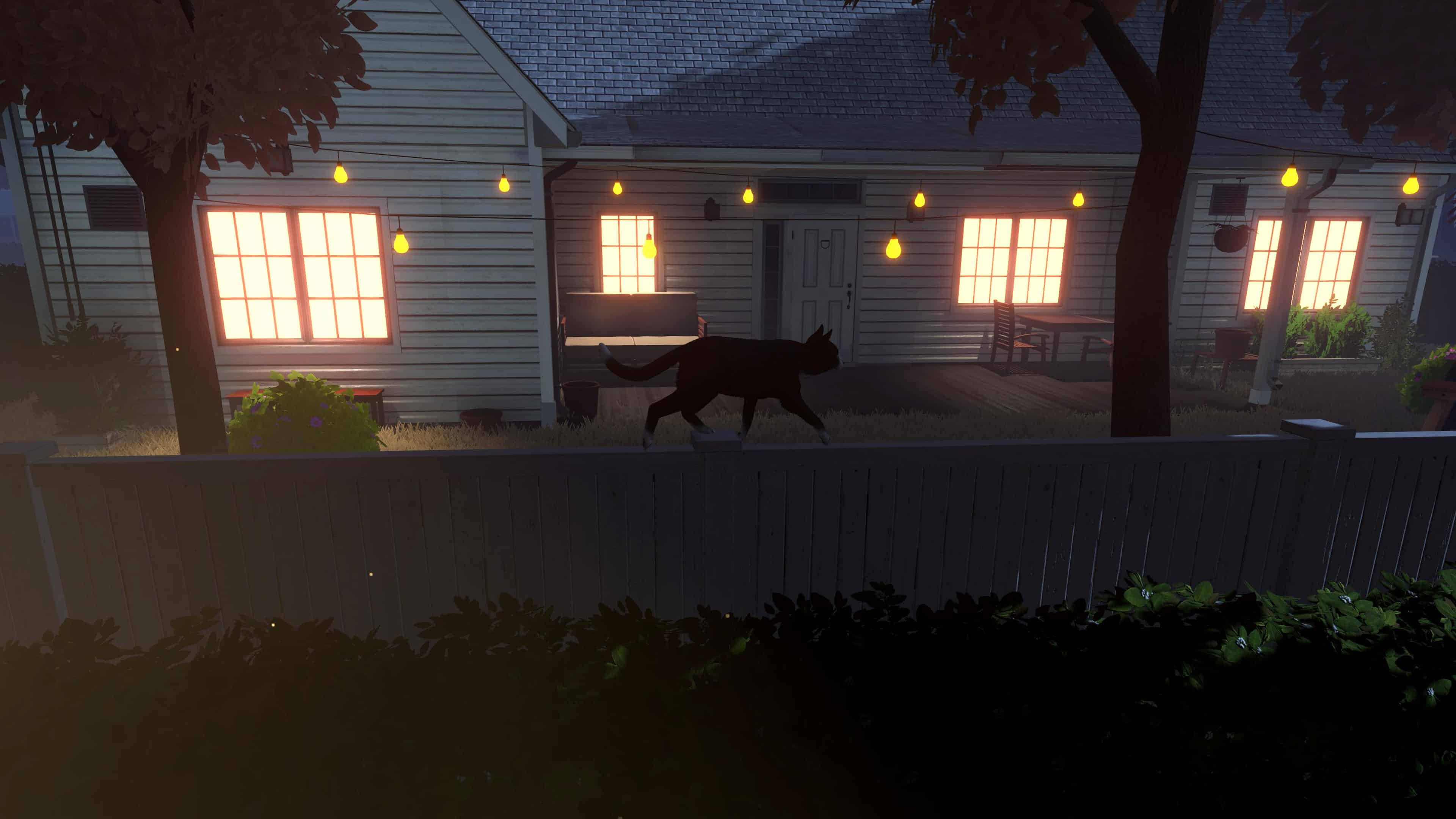
The conflict of emotions creeps back in as your playful experience as a cat is interrupted by seeing Olive fight to maintain her independence. You don’t have the added context of her internal monologue and that makes it all the more emotionally affecting. It’s uncomfortable to watch her struggling from an outward, powerless perspective.
“We always say that Copycat is ultimately a human story told through the eyes of a cat. A cat is this beautiful vessel that can help us experience it from a different perspective,” Kostia says.
“We wanted to challenge people to reconsider their sense of self,” says Sam. “Cat was less human, so we can ask more [difficult] human questions like: ‘why do I exist?’, ‘why do I have to keep on going?’, ‘what’s my purpose in the world?’. Dawn goes on a journey where she comes face to face with these questions a lot, but it’s up to the player to try to navigate with her to get her through to the other side.”
“Some hearts may be broken. It’s ultimately a game about broken hearts and there are sad moments,” says Kostia. “We promise no cats got hurt, but definitely there is a big emotional curve and journey that the characters go on.”

The preview of Copycat provided to GamesHub sets the scene for a complex, moving narrative experience. We look forward to seeing more when the full game launches, with a current estimated release window of Q1 2024.
As one of the winners of the PAX Aus 2023 Indie Showcase, Spoonful of Wonder will have a booth in the Indie Showcase area, proudly supported by GamesHub. The Copycat demo will be playable during Expo Hall hours, 10am to 6pm, October 6-8.
Wishlist Copycat on Steam.
